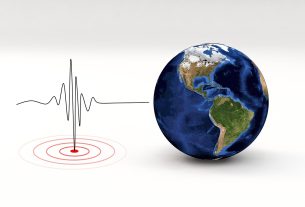The EU and China have, historically, had a complex relationship. This was encapsulated in the European Commission’s 2019 EU-China strategic outlook, which referred to China as both a “strategic partner”, but also an “economic competitor” and “systemic rival promoting alternative models of governance”.
Since the outlook’s publication, tensions have only increased between the two powers. More recently, disagreements over China’s responsibility for the origin of the COVID pandemic and China’s position on the war in Ukraine have contributed significantly to the worsening of the relationship.
However, Donald Trump’s return to the White House is a potentially game-changing development. The US president’s ongoing trade war, which targets both the EU and China, could lead these actors to a rapprochement that would allow them to better resist Washington’s onslaught. Many analysts are now pointing to a “reset” in EU-China relations, but the situation is anything but clear cut.
Read more:
US-China tensions are an opportunity – the EU could become the world’s third great power
Longstanding issues
The idea of a sudden “reset” in EU-China relations is dubious on at least two fronts. Firstly, the EU’s pursuit of renewed relations with China is not solely a consequence of the new US administration’s policies. It has been ongoing for at least two years, as Ursula von der Leyen and Emmanuel Macron travelled to China in April 2023 with the explicit goal of a “reset” in relations.
Secondly, a strategy of rebalancing towards China vis-à-vis the US was already being weighed up by the European Union as far back as 2017, during the first Trump Administration, though this push failed to produce any significant results.
In order to properly assess the chances of a far-reaching change in EU-China relations, two questions must be asked: to what extent is this a real change and not just rhetoric? And what is each of the two actors willing to concede in order to improve the relationship?
Barriers to cooperation
China regards the EU as weak and divided and, contrary to the EU’s aspirations, continues not to take it seriously. Consequently, China believes that a few declarations and symbolic gestures – such as lifting the sanctions it imposed on MEPs and their families in retaliation for EU sanctions imposed on China for human rights violations in Xinjiang – will be enough to send the EU, desperate in the face of US policies, into China’s waiting arms.
Confirmation of this attitude can be seen in China’s recent appointment of Lu Shaye – known for his tough “wolf warrior” style of diplomacy when serving as ambassador to France – as Special Envoy for Relations with Europe.
For Brussels, there are various issues preventing the possibility of a clean slate in relations with China, not least the increasingly close ties between Beijing and Moscow, which were bolstered by Xi Jinping’s recent attendance at Russia’s Victory Day military parade in Moscow on May 9. China’s contribution – both by action and omission – to Russia’s invasion of Ukraine is one of many other obstacles that will be difficult to overcome.
The diplomatic strain is evident at the highest levels of the EU. High Representative of the European Union for Foreign Affairs and Security Policy, Kaja Kallas, has unequivocally stated that “China is the key enabler of Russia’s war”.
Read more:
Russia-China ties on full display on Victory Day – but all is not as well as Putin is making out
Strategic adjustment
In its dealings with China, Brussels ought to take a pragmatic and calculated approach that allows it to compensate, even if only partially, for the problems arising from the Trump administration’s trade policy, but without renouncing its values and interests.
Moreover, the European Union remains aware of the risks associated with Chinese investment in strategic and high-tech sectors, as well as of the risks associated with those sectors and activities which could endanger data protection.
In the case of the EU, what we are seeing is therefore not a radical shift but a tactical adjustment. The idea is to introduce a relaxation of language – the Commission now speaks of a “transactional” relationship and “constructive engagement” with China – and to build a relationship that grants the EU more options and room for manoeuvre in its dealings with the US. This must all be done, however, without abandoning the logic of derisking in the continent’s relationship to China.


